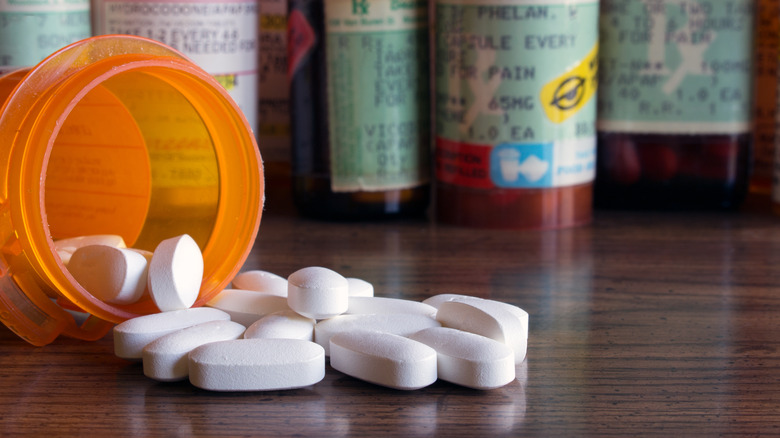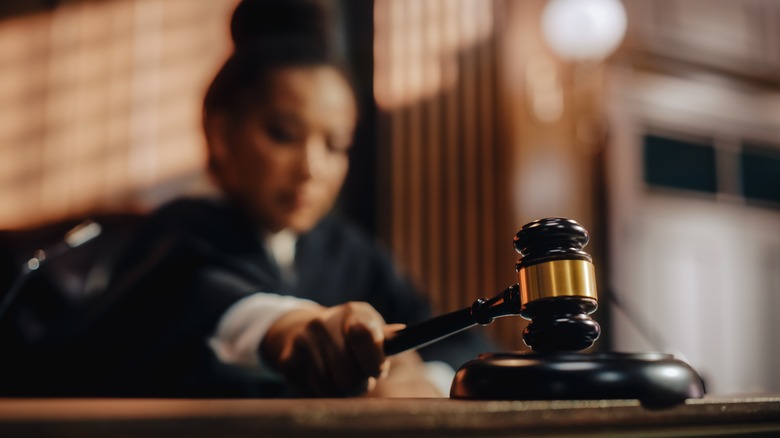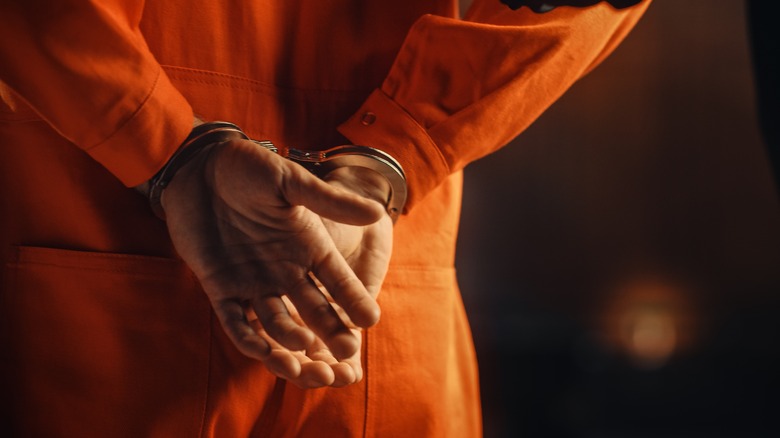Can The Sackler Family From All The Beauty And The Bloodshed Be Prosecuted For The Opioid Crisis?
The United States is currently in the midst of what has come to be called the opioid crisis. As the Harvard School of Public Health explains, at least 600,000 people have died from opioid overdoses since 1999, and an estimated 1.2 million will be dead from such overdoses by the end of the decade, if current trends continue. "The current opioid crisis ranks as one of the most devastating public health catastrophes of our time," said Howard Koh, professor of the practice of public health leadership at the university.
The crisis began in the mid-1990s with the development of OxyContin, a powerful and powerfully-addicitive painkiller, derived from the same chemicals that produce heroin, according to the Drug Enforcement Administration.
OxyContin was and is produced by Purdue Pharma, which is owned by the Sackler Family; the recent documentary film, "All the Beauty and the Bloodshed" tells the story of photographer and activist Nan Goldin's attempts to hold the family accountable. Indeed, the family has been and is still being held accountable for the opioid crisis — at least, financially. They've paid out hundreds of millions of dollars in settlements. But that's civil liability, and some are keen to see the family held criminally liable as well.
The Family's Civil Payouts Are A Drop In The Bucket
In March 2022, as NPR News reported at the time, a deal was reached that would see the Sackler family pay a $6 billion settlement to end multiple lawsuits in several states. In a statement, the Sackler family expressed "regret" for their role in the opioid crisis, but denied any wrongdoing. "[We] sincerely regret that OxyContin, a prescription medicine that continues to help people suffering from chronic pain, unexpectedly became part of an opioid crisis that has brought grief and loss to far too many families and communities," reads their statement, in part.
The $6 billion the family was ordered to pay is a drop in the bucket compared to the ongoing cost of the opioid epidemic. As the Centers for Disease Control reports, in 2017 alone the opioid epidemic cost $1.02 trillion in the U.S., a year in which over two million people over the age of 12 had an opioid addiction, and 47,000 died of opioid overdoses.
The settlement is also trifling in comparison to the family's wealth. In April 2021, the House Committee on Oversight and Reform reported that the family's net worth was $11.1 billion. And while a $6 billion settlement will reduce that wealth by more than half, that still leaves around $5 billion.
But What About Criminal Liability?
Will the individuals responsible for the drug that fed the opioid crisis — the Sackler family — face any criminal charges for their involvement? There are actually two questions here: Can they be charged criminally, and will they be charged criminally?
NPR News reported in March 2022 that the terms of the settlement that the family agreed to do not preclude them from facing any criminal charges. The same report noted that the company (not the family that owns it) has pleaded guilty twice to federal criminal charges for deceptively marketing the drug and downplaying the risks of addiction associated with it.
As for whether or not any criminal charges against the family will ever materialize, that remains to be seen. As recently as February 2022, Senator Edward J. Markey (D-Mass.) and a group of his colleagues urged the Department of Justice to investigate the family. "As owners and operators of Purdue Pharma, the Sackler family exacerbated the opioid epidemic's staggering human and economic toll on hundreds of thousands of Americans," the group said, via Markey's website. "[We] called on DOJ to consider possible criminal charges for members of the Sackler family." It remains unclear, as of November 23, 2022, whether or not the Justice Department intends to pursue an investigation and, if so, any criminal charges will come of it.


